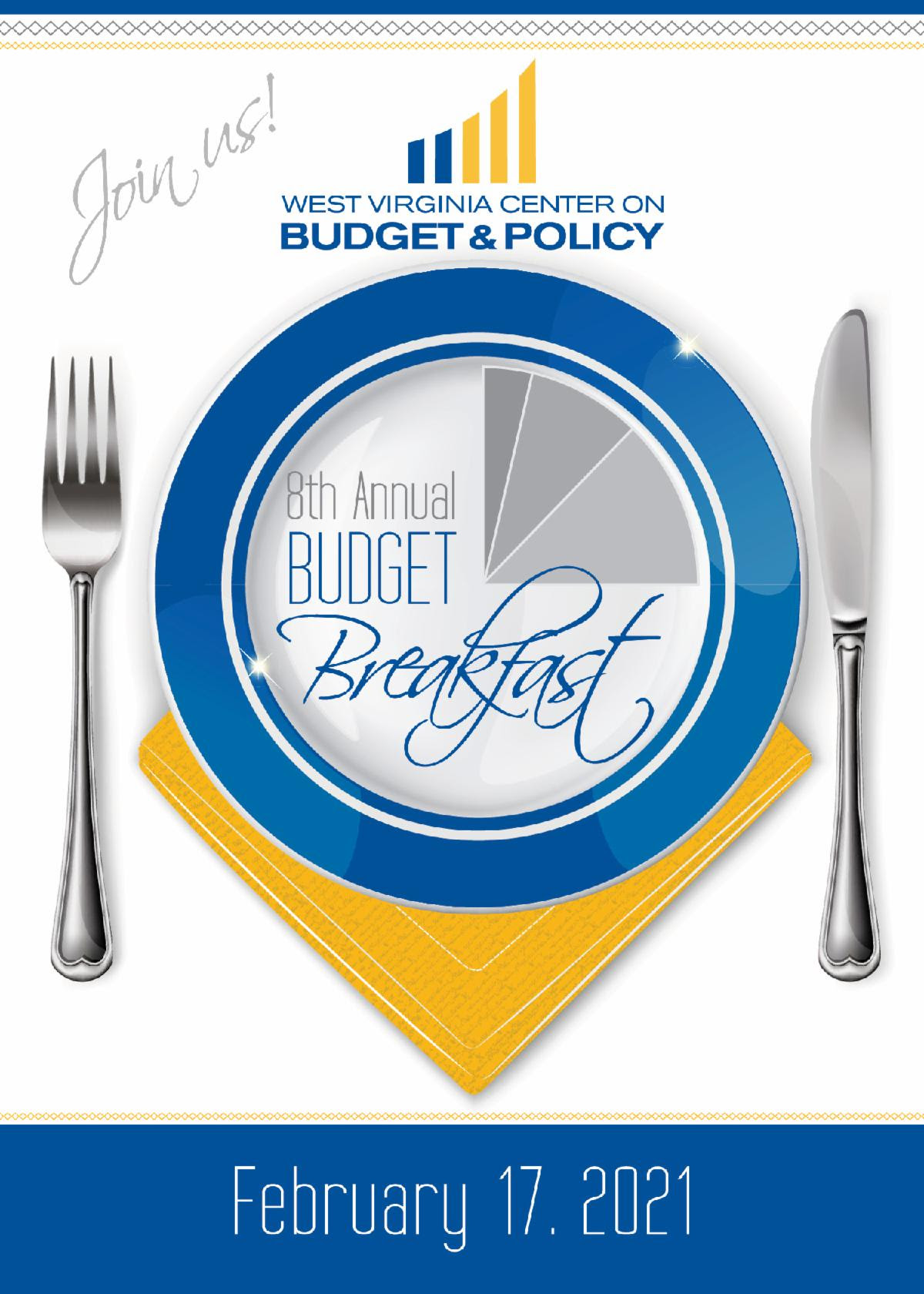Over the past 40 years, the mass incarceration of women in West Virginia has exploded, growing by a staggering 2,731 percent from 1978 to 2019.”But the reasons more women are going to prison in WV have less to do with rising crime and more to do with social drivers (like poverty and substance abuse), and policy drivers (like changes in the way police respond to crime, and in sentencing decisions that determine who goes to prison and for how long). … Once incarcerated, a range of far-reaching consequences impact not just these women, but their families, communities, and the state as a whole.”
Learn more about the causes of this growth, the consequences, and the solutions in our newest report here.
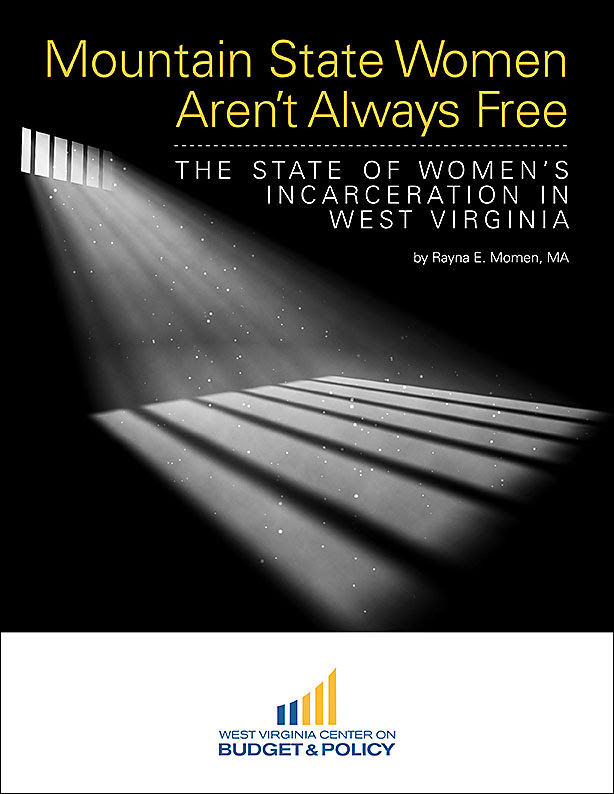
One of the most significant bills passed during the 2020 legislative session is expected to go into effect on January 1, 2021. SB 648 adds a dental benefit to the state’s adult Medicaid program, extending this important coverage to an estimated 310,733 West Virginia adults. The legislation provides for each adult Medicaid recipient to be eligible for up to $1,000 in dental care each calendar year, including preventive, diagnostic, and restorative services such as the provision of dentures, dental implants, bridges, and crowns, and corrective procedures like root canals.
Prior to the legislation, West Virginia was an outlier, offering only emergency extractions to adult Medicaid enrollees, with 36 states offering more extensive dental benefits to this population. This left many adults with no choice but to wait until a tooth was at the point of needing to be pulled to receive dental care. In addition to overall oral health, many chronic health conditions are impacted by untreated oral conditions, including atherosclerotic disease, osteoporosis, kidney disease, and pregnancy complications. Poor oral health, including loss of teeth, also impacts employability and absenteeism, worsening residents’ financial stability and our state’s economy.
Over the long-run, the state’s costs of providing dental services will likely be offset by savings from improved health outcomes, reduced use of emergency department services for dental conditions, and reduced Medicaid expenditures on the related chronic conditions impacted by oral health.
Read Kelly’s full blog post.
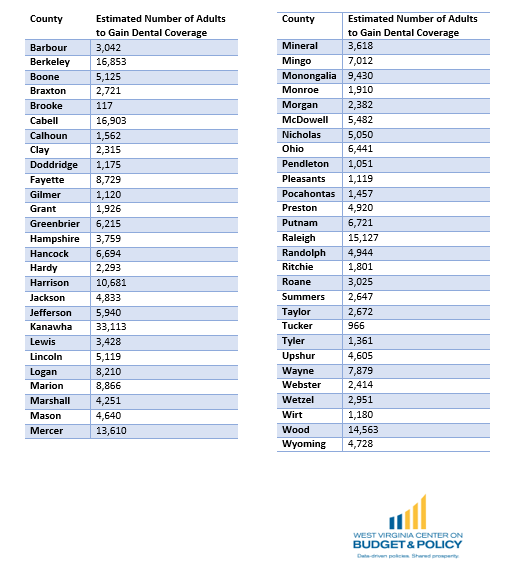
In March, the U.S. Congress and President Trump passed the CARES Act, which provided Coronavirus Relief Funds (CRF) to states to help address the health and economic costs of COVID-19. West Virginia received $1.25 billion in April, of which over $800 million is allocated but remains unspent. Under federal treasury guidance, the funds must be used to cover costs that are necessary expenditures due to the public health emergency, not accounted for in state budgets, and incurred during a period between March 1 and December 30, 2020. This means that West Virginia has less than a month to spend over $800 million in a way that targets remaining funds to those West Virginians who need them the most.
The remaining allocated but unspent CARES Act funds represent a significant opportunity to address the extreme hardship present throughout the state. It has now been months since federal unemployment support expired. In a recent survey, 67 percent of West Virginia renters said they are at risk of being evicted in the coming months and nearly one in five households with children reported not having enough to eat over the last month.
Take action today and join 30+ organizations urging Governor Justice to support the People’s Proposal to help West Virginians by providing rental and utility assistance, support for child care centers and parents with child care needs, increased payments to unemployed workers, food and transportation assistance, and more.
Learn more about how the money has been spent — and the important needs left unaddressed — here and here.
Read the full People’s Proposal here.
Sign our petition here.
You can also call Gov. Justice and urge him to extend utility relief and allow households to apply for relief funds to cover August – December bills at 304-558-2000.
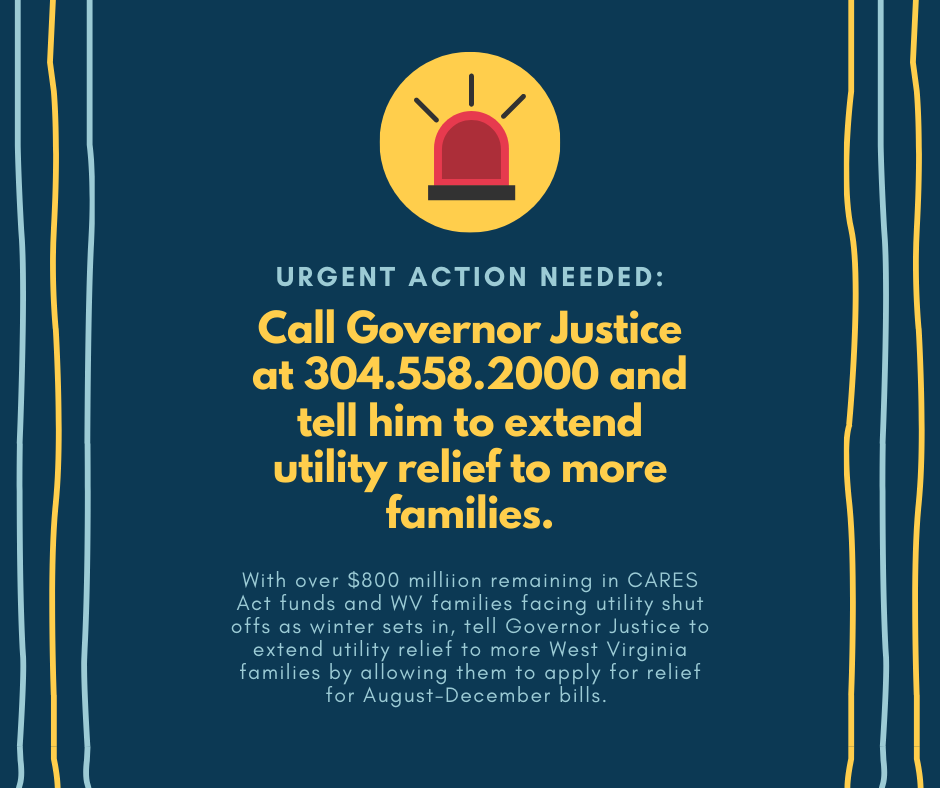
As negotiations regarding the next federal stimulus package continue, WVCBP’s policy outreach direct Seth DiStefano was interviewed last week to discuss what another relief package would mean for West Virginia.
He highlighted how provisions from the first package, such as the $600 boost to weekly unemployment insurance (UI) benefits, were critical both in allowing West Virginians to make ends meet, as well as for keeping state and local economies from experiencing even more severe damage than they did.
Like the enhanced UI benefit, many of these provisions have already expired. Those that have not, soon will. Without a second round of federal relief, West Virginia will see already severe levels of hardship worsen.
Watch the full interview here.

Solutions Oriented Addiction Response (SOAR) WV is a volunteer-run harm reduction group working to promote the health, dignity, and voices of people who are impacted by drug use. One piece of their work involves distributing clean syringes to people who inject drugs in the effort to prevent the spread of disease, such as HIV and Hepatitis C.
To the detriment of the community, the group’s crucial syringe distribution work has been forced to temporarily pause after local police claimed they were violating a municipal ordinance. This claim is highly disputed, with some legal experts arguing that the ordinance does not in fact prohibit syringe distribution without a license.
People who inject drugs and academics agree — limiting access to needles doesn’t prevent use.
From Robin Pollini, a researcher at WVU, who holds a Ph.D. in public health from Johns Hopkins:
“In 20 years of doing this work, I’ve never met a person who said: If I didn’t have access to sterile syringes, I would stop injecting. It just doesn’t work that way.”
WVCBP supports the effective and people-centered work done by SOAR.
Read more about the halt to syringe distribution services here.
Learn more about how harm reduction efforts serve as a both a compassionate and economic response to drug use from our recent blog here.
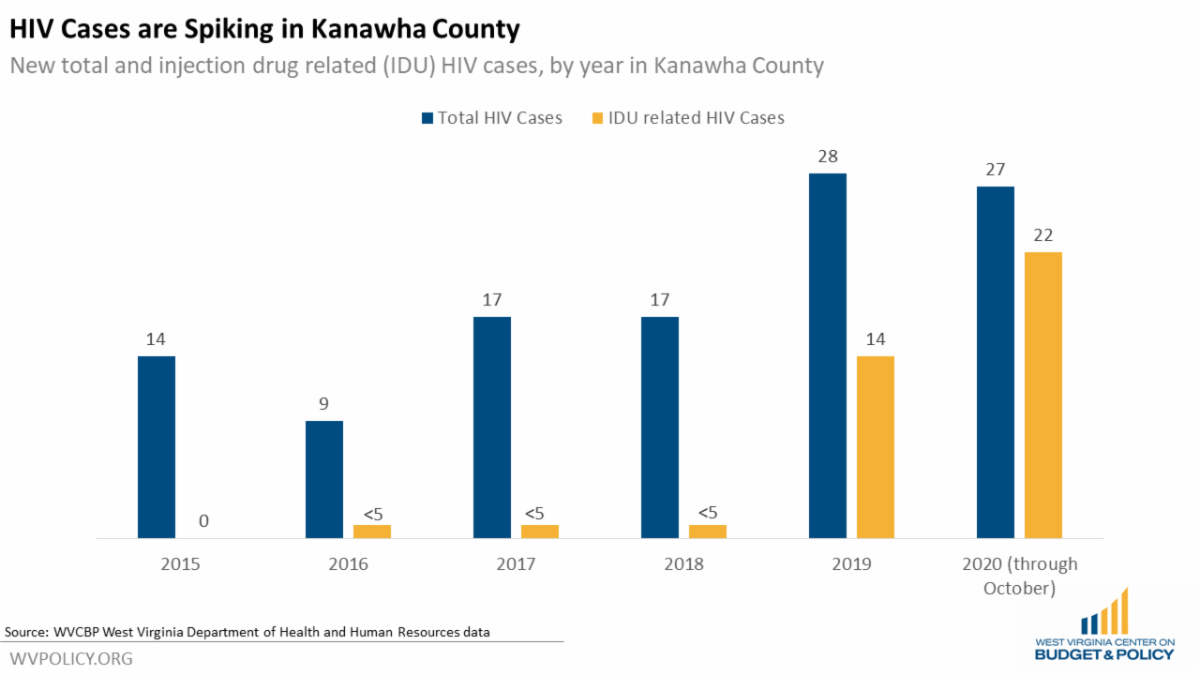
Our Future West Virginia youth organizer Takeiya Smith wrote an op-ed recently featured in the Charleston Gazette-Mail explaining how our democracy is strengthened when more people are able to participate in elections.
Smith states:
“If you’re just talking about West Virginia’s ‘active’ voters, then the turnout [in the 2020 election] was 73%.
“That’s not just good. That’s an emphatic statement that, when our election officials make voting more accessible, it better reflects the will of the people.
“Yet, now is not the time to be satisfied. Every election should have this kind of turnout. Or even better.
“Our election officials and state government should strive to strengthen our voting rights, eliminate barriers to voting that disproportionately affect young people and communities of color, and ensure that all eligible voters have access to the ballot box.”
Read more about Smith’s suggestions for making voting more accessible in West Virginia here.

Save the dates!
The West Virginia Criminal Justice Reform Summit, being held Jan. 27 – 30, will explore the system from start to finish, from pre-arrest to re-entry. Through informative speaker sessions, the summit will engage directly impacted people and a variety of other experts to explore the connections between poverty and the criminal legal system. The summit will also offer skill-building workshops on how we advance nonpartisan policies to reduce mass incarceration and promote public safety.
This summit is being hosted by the West Virginia Criminal Law Reform Coalition, of which WVCBP is a proud member.
Check out the Facebook event for further details and registration to come.
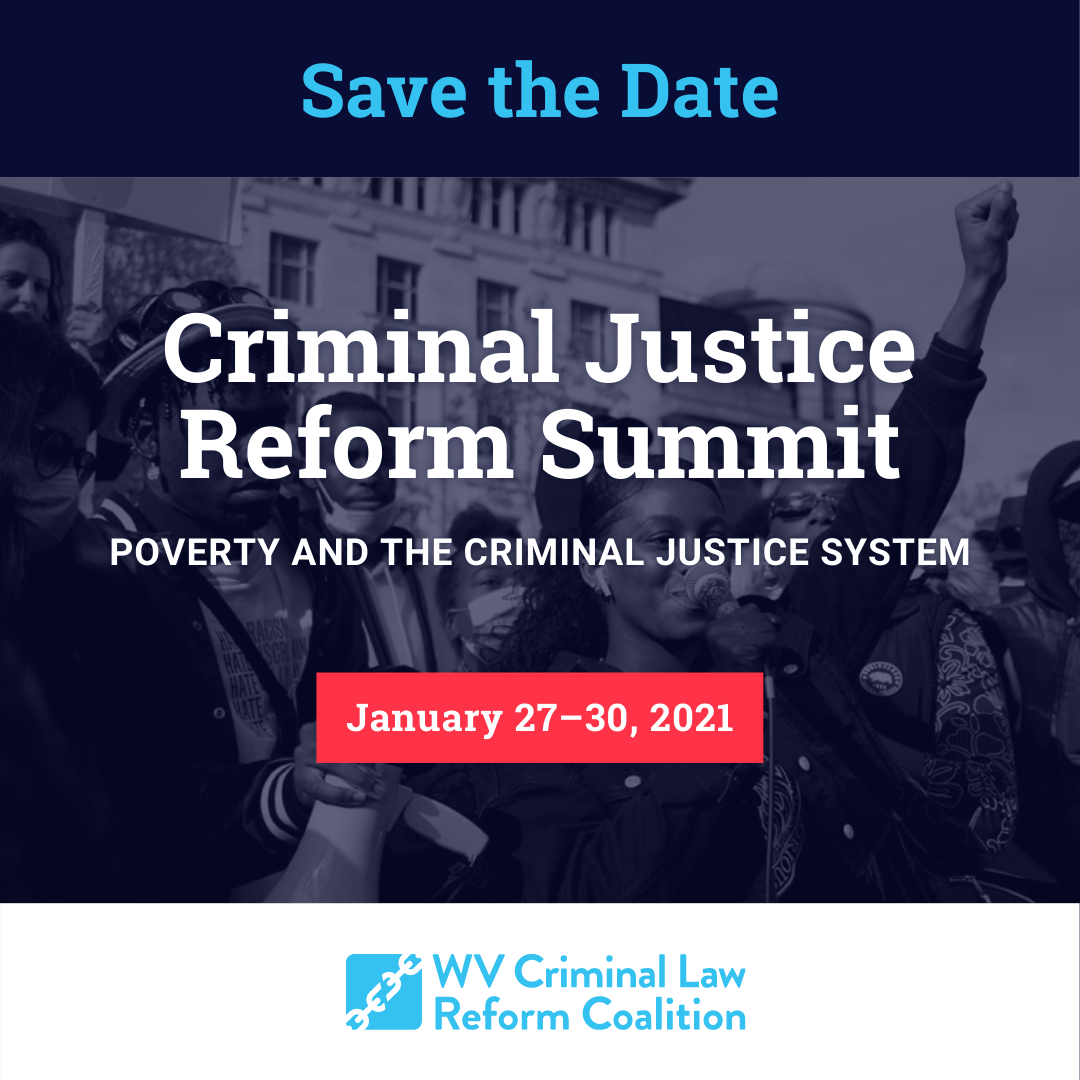
Join us for our 8th annual Budget Breakfast!
Due to COVID-19 considerations, this year’s event will be held virtually via Zoom.
WVCBP’s analysis of the Governor’s 2022 proposed budget will start at 8:00am, followed by keynote speaker presentation and time for Q&A.
While attendees are welcome to join the webinar at no cost, we hope you will consider supporting the WVCBP’s work and contributing to our annual fundraiser by donating the usual cost of an in-person ticket ($40 before the end of year or $50 beginning Jan. 1, 2021).
Register here.
We hope to see you there!
